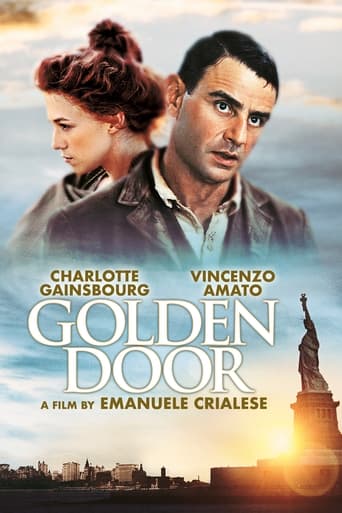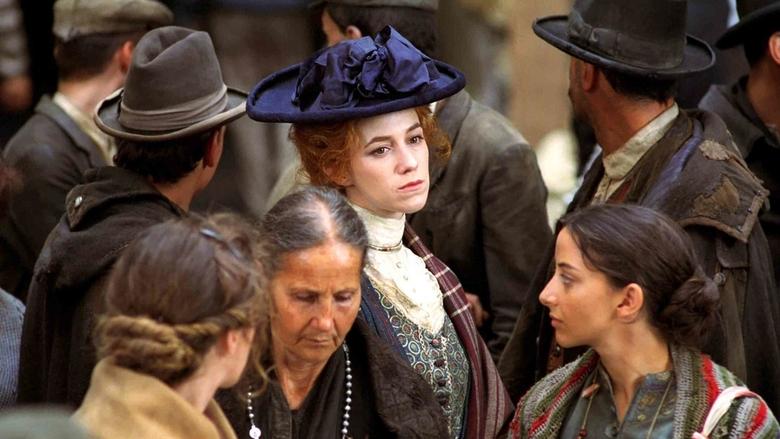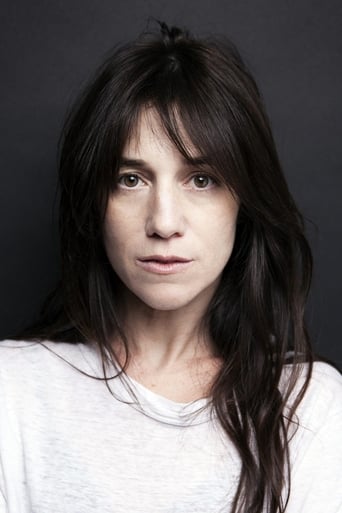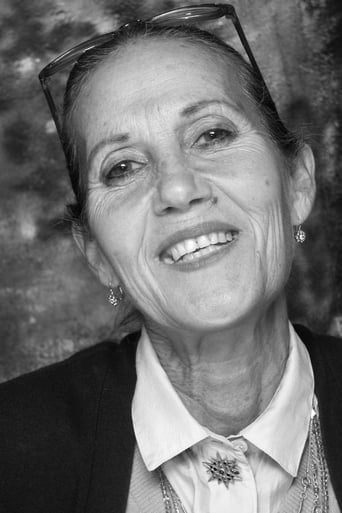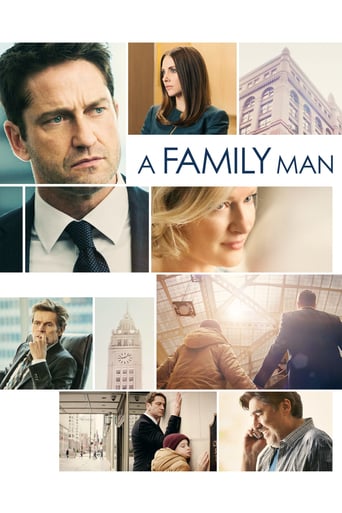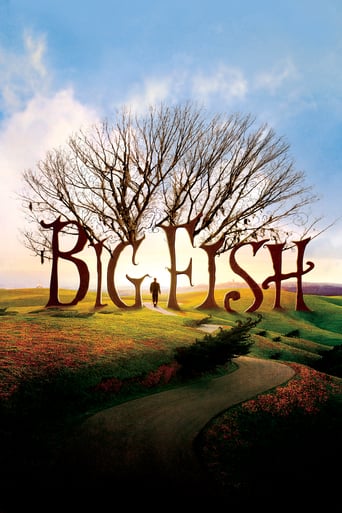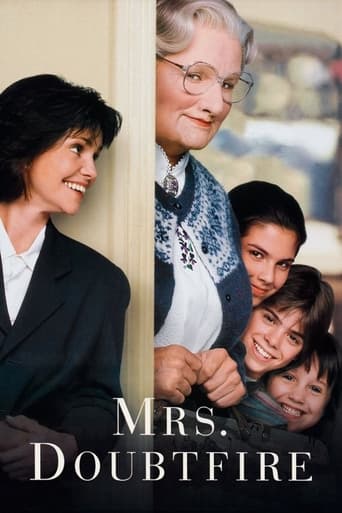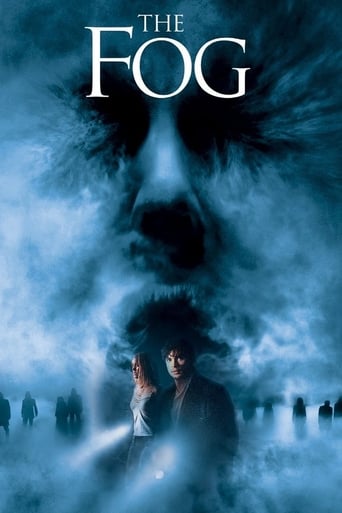Golden Door (2007)
The story is set at the beginning of the 20th century in Sicily. Salvatore, a very poor farmer, and a widower, decides to emigrate to the US with all his family, including his old mother. Before they embark, they meet Lucy. She is supposed to be a British lady and wants to come back to the States. Lucy, or Luce as Salvatore calls her, for unknown reasons wants to marry someone before to arrive to Ellis Island in New York. Salvatore accepts the proposal. Once they arrive in Ellis Island they spend the quarantine period trying to pass the examinations to be admitted to the States. Tests are not so simple for poor farmers coming from Sicily. Their destiny is in the hands of the custom officers.
Watch Trailer
Cast


Similar titles
Reviews
Must See Movie...
Highly Overrated But Still Good
It's funny watching the elements come together in this complicated scam. On one hand, the set-up isn't quite as complex as it seems, but there's an easy sense of fun in every exchange.
The film's masterful storytelling did its job. The message was clear. No need to overdo.
"Nuovomondo" was a great experience. Many filmmakers tell their stories to a big extent via dialogue. Emanuele Crialese directs his film very visually driven. For everything he wants to tell, he finds powerful images that are able to stand for themselves. Thus, he understands film as a medium that primarily tells its stories over the pictures on screen. Particularly European cinema is often very dialogue-driven (and many of the young US-American directors are strongly influenced by that). Crialese's opposite attitude was really the point, that made this film special for me. It has also a very interesting topic that is wrapped up in a quite unusual story and told with humour. Vincenzo Amato is outstanding as family head Salvatore, as well as the amazing Charlotte Gainsbourg, who I enjoy watching in every single one of her movies. There are many great sequences in this movie. Just to pick one: When the ship leaves Italy and the people just quietly stare. This scene is great, particularly if you consider the pop cultural references that go with it (Titanic!).
Golden Door is a miniature epic, tracking a Sicilian's family emigration to the USA. It starts much too slowly, and although characters are established, it is ill thought out - particularly the dream sequences, which could have provided an added insight.Once the action moves onto the voyage, however, and Charlotte Gainsbourg's character is introduced, an interesting story emerges, and this, combined with humorous touches, are what make the film bearable. It is well directed and shot, with the other lead character, Vincenzo Amato, also impressing.3 / 5
Stranger things have happened than the director of 'Respiro' seeing the well-worn and much-loved opening credits sequence for Monty Python, and allowing his memory to resurface in the opening of this epic as two young men, now in close-up, now tiny and lost in the aerial microcosmic pattern of hill rocks, pieces of stone jammed in their bleeding mouths, struggle to the holy cairn at the top to ask a vital question. Simultaneously two girls, bearing promises of marriage to (perhaps) rich foreigners and photos of giant vegetables and American streets paved with gold, are persuaded to throw the photos away; the pictures are taken by a dumb lad to the cairn just as the eldest, Salvatore (Amato), begs the Gods to tell "us" if "we" should stay, or leave. Salvatore, his family, which gradually grows as the story opens out, are joined by a lost and rootless English lady (Gainsbourg) who decides to join the family if she can, to gain entry into the Promised Land. The story right from the start looks like a coat hanger for the visuals, and it is a treat throughout for the eyes. The great break as the ship leaves home is handled in a completely unconventional way: A God's-eye view shows the heads on board and the heads remaining on shore slowly separating as the ship moves out, as if the crowd is a 'people cake' that has been sliced. The sheer brutality of the situation these people have to live through is leavened by this kind of camera-work, and by the occasional magic dream, as when the no-longer brooding Salvatore's face is showered by coins. The tensions, though, coming out of the struggle to leave the Old Country, survive the voyage and pass into the New Country, and the simple efforts of strangers to cope with each other, keep it fascinating. Whenever Aurora Quattrocchi, 'Mama', is on screen, it seems to shift round to her point of view, yet another layer. The episodic structure, too, adds to the illusion of it's being shorter than it is. There are as many apparent links to the coming century as to the past here - the scenes on the mountain look like Pasolini, and the three males could almost have been the Marx BrothersAfter the nightmare of travelling 'steerage', a storm in mid-Atlantic and the interminable and humiliating selection process and 'aptitude' tests at Ellis Island (lack of intelligence has been scientifically proved to be genetically inherited, and we do not want these people amongst our citizens), it remains ambiguous whether everyone has got through to the Land of Milk and Honey, or the Mean Streets. I would say on the strength of this, that if anyone has the guts to put up the money for a film of 100 Years of Solitude, Crialese must be your man. CLIFF HANLEY
The Golden Door is the story of the Mancuso family's journey to America at the turn of the last century. The movie can be thought of in three distinct segments: the life the immigrants left behind in "the old country," the Atlantic passage to America, and the processing through Ellis Island.The opening scenes, although they take place a mere 100 or so years ago, conjure up the Dark Ages. For all the superstition, illiteracy and darkness that pervaded peasant life in Italy at that time, it might very well have been that era.Once the family decides to depart (only after receiving a "sign" from a saint to whom the patriarch prays), the horrendous conditions in steerage make it hard to imagine that these poor souls took on this voyage voluntarily. But they went. They went seeking out a life in a new land where money grows on trees and rivers run with milk (two of the more surreal themes in the movie).The processing on Ellis Island which could end in forced return to the old country included every kind of indignity, including communal showers, medical exams en massed, intelligence testing that today would be denounced as "culturally biased," and brokered engagements held in an almost auction-like public setting. When it is inquired why all this is necessary, it is pronounced that America does not want the taint of inferior people.Running as a subplot to the story of the Mancuso family is the story of Salvatore Mancuso and Lucy Reed, an English gentlewoman on board the ship who proposes to him as a means of gaining her admission to America where sponsorship is required of immigrant women. Although she claims that this will be nothing more than a marriage of convenience (and "not for love"), her eyes tell a different story, whereas Salvatore is clearly smitten with her.This is a gritty and richly detailed movie. One scene where an elderly grandmother holds her grandson's hands in hers focuses on the dirt embedded under their finger nails.The soundtrack is great, although not appropriate to time or place, alternating between too modern (the music playing over the credits) and more Middle Eastern-sounding than Italian (the folk music played by the immigrants while on board ship).To witness the hardships that our forebears forbore to pass through "the golden door" is to be jolted out of our American complacency and to appreciate what they endured to pave the way for the lives we enjoy today.Laura L.

